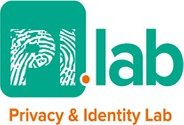Me, my data and I: The future of the personal data economy
21/03/2017
This report is about the need to give people more control over their personal data.
It is part of DECODE (DEecentralised Citizen Owned Data Ecosystems), a major EU
project which is developing practical tools to give people control over how their data
is used, and the ability to share it on their terms. The report identifies the problems
current uses of personal data cause for people’s privacy, the economy, and for society.
It explores the vision of DECODE and how it would address these problems, before
discussing the challenges which the project will have to overcome in order to be
successful.
The internet, and later the World Wide Web, emerged out of hope that it would be a
democratising force, open to anyone and free to use, without walls or ownership. While some
of that spirit remains, the reality today is very different. We live in a world where Google now
has over 90 per cent market share in internet searches. Facebook, having just hit two billion
users, has a penetration of about 89 per cent of internet users. For most people, these platforms provide a gateway to the web. But their dominance is growing far greater than their equivalents in previous industrial eras. So how did we get here?
The increase in global connectivity and the ‘datafication’ of everyday life means that people
produce rich trails of information all the time - from location, to shopping and browsing habits,
to ‘likes’ on social media. This information has become the central driving force for value
creation on the web, as users have been content to sign away use of their data to advertisers, in return for a range of ‘free’ services.
For many people, this is simply part of the deal. It makes sense for companies to know more
about their users in order to provide a more efficient and more personalised user-experience.
But the side-effect has been a rapid consolidation of power among internet firms, largely
because those that were able to use data to create the largest user-base in turn benefited from positively reinforcing network effects.
This matters because some of society’s most important infrastructures - those of the internet
economy - are now unaccountable. Their business model relies on asking users to trust
platforms absolutely, yet companies benefit from opacity and lack of transparency about where they make their profits from data.
The use of personal data as a commodity has amplified in scale and complexity, leaving regulators struggling to catch up. People have surrendered their personal data and have limited control over how this is used. This has led to strong market concentration in the digital economy, with a handful of digital platforms being able to gather, aggregate and analyse large amount of data.
Five hundred million adblocker downloads is a symptom of a market which isn’t working
well for people. User experience of being on the web is increasingly one of being tracked,
targeted, and hacked, and this is reflected in the numerous user surveys about feelings of
disempowerment about how people’s personal information is managed online.
